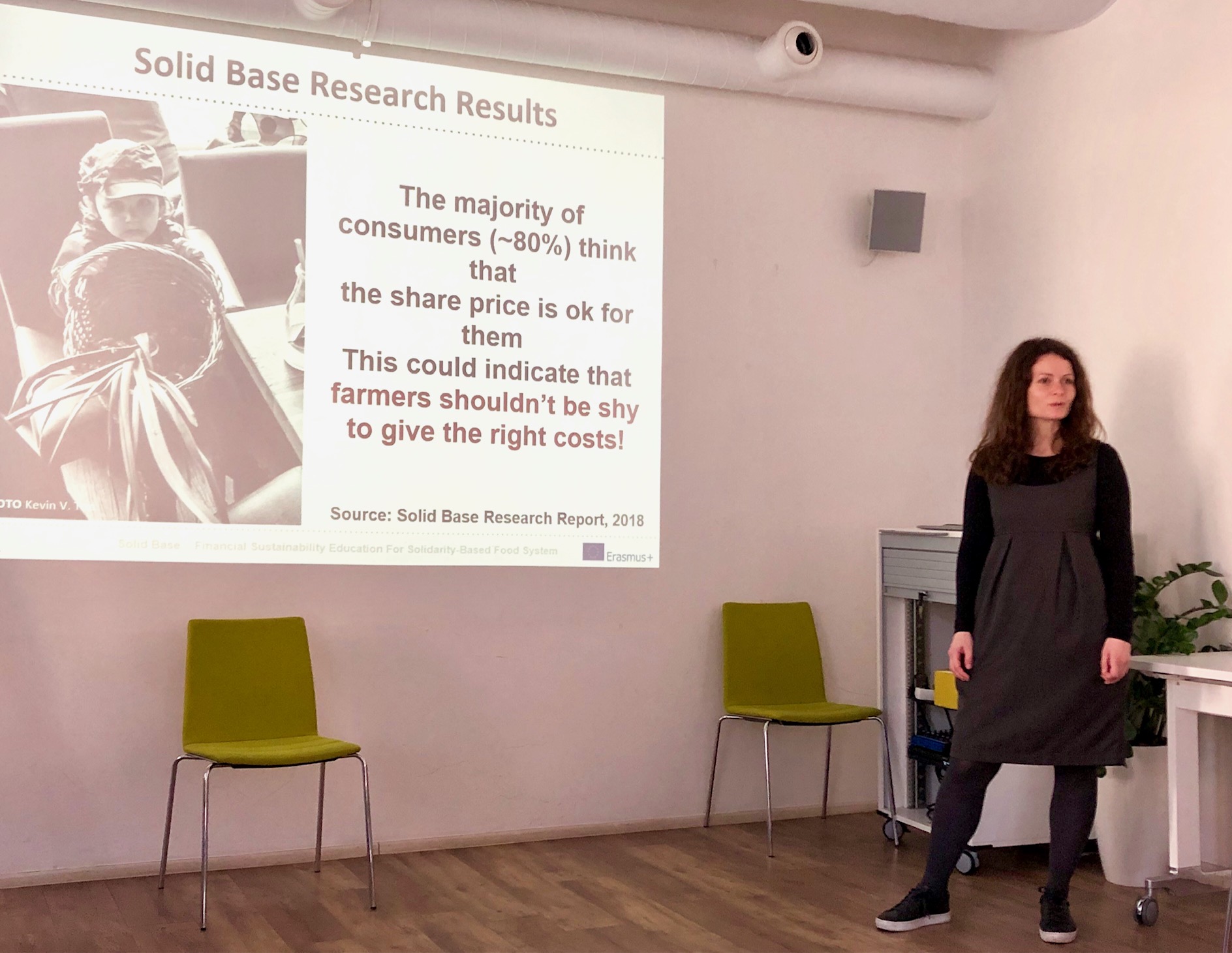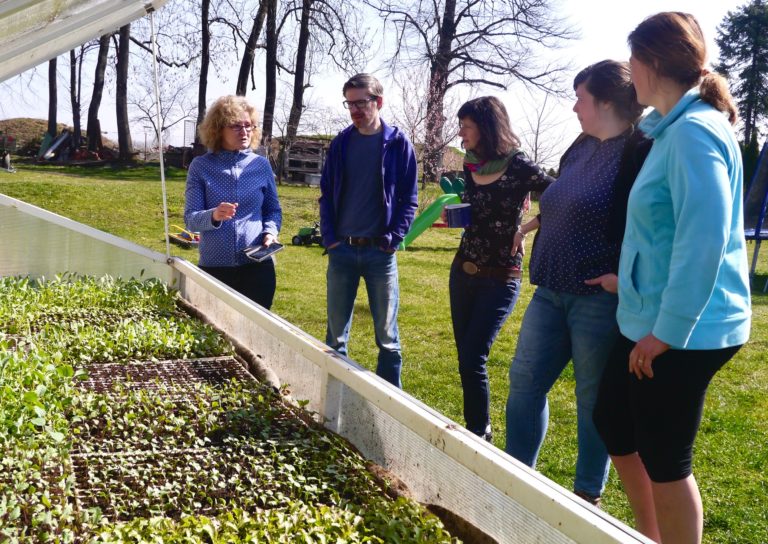Jana Kožnarová, Ampi
The second of the four test seminars foreseen in the European project “Solid Base – Financial Sustainability for Solidarity-Based Food System“ focused on how to plan CSAs financially. During this seminar, the discussion was on how we should be looking for new ways of supporting the financial self-sufficiency of solidarity food systems, including Community –Supported Agriculture (CSA).
A seminar was organized in Moravia, more specifically in Ostrava. The idea was to meet customers and farmers who are involved in Community -Supported Agriculture there. The seminar focused on sharing practical examples and experiences on the topics of time management and revenues at the end of the season. At the same time, the presentation prompted various exchanges of practical experience among the participating farmers.
Another lecturer was Šárka Krčílková, who presented the results of the European research on CSA initiatives within the “SolidBase” project. Šárka leads the Cooland CSA group and presented their financial operating plan. She also discussed the organizational side of the CSA model. The financial management of the farm and the management of the initiative managed by the shareholders are separated in this model. It was interesting to learn how the coordination team’s roles are divided, how much time is needed to ensure that the CSA runs effectively, and to see the overall work plan for the year.

Although the season officially begins at the end of May, in reality it starts in January. Then, the first step is the preparation for a new season, which includes recruiting new shareholders. The session continued with a demonstration concerning the so-called CSA “community type”. In this model, the community grows for themselves on the field they are renting. The price of the vegetables reflects the actual cost of growing it, because it is based on the real budget and the real costs the community is facing. It was very valuable to see how the budget changed over the three years of community existence.
Finally, the Association of Local Food Initiatives (AMPI) was presented. It is the umbrella organization for CSA development in the Czech Republic. The results of the first meeting regarding the creation of a national network of CSA initiatives were also presented.
In the evening, the group went to the Šelong Ecofarm and was graciously invited to spend the night. It was the opportunity to see how the hosts were farming. Gábina and Pavel have been supplying vegetables for four years to four sampling groups in Ostrava. They are currently feeding about 200 families.
The next day, the group went on an excursion at the farm and also baked a bread. The Šelong should be thanked for their hospitality and, above all, for supporting their profession with an open mind and open heart.

